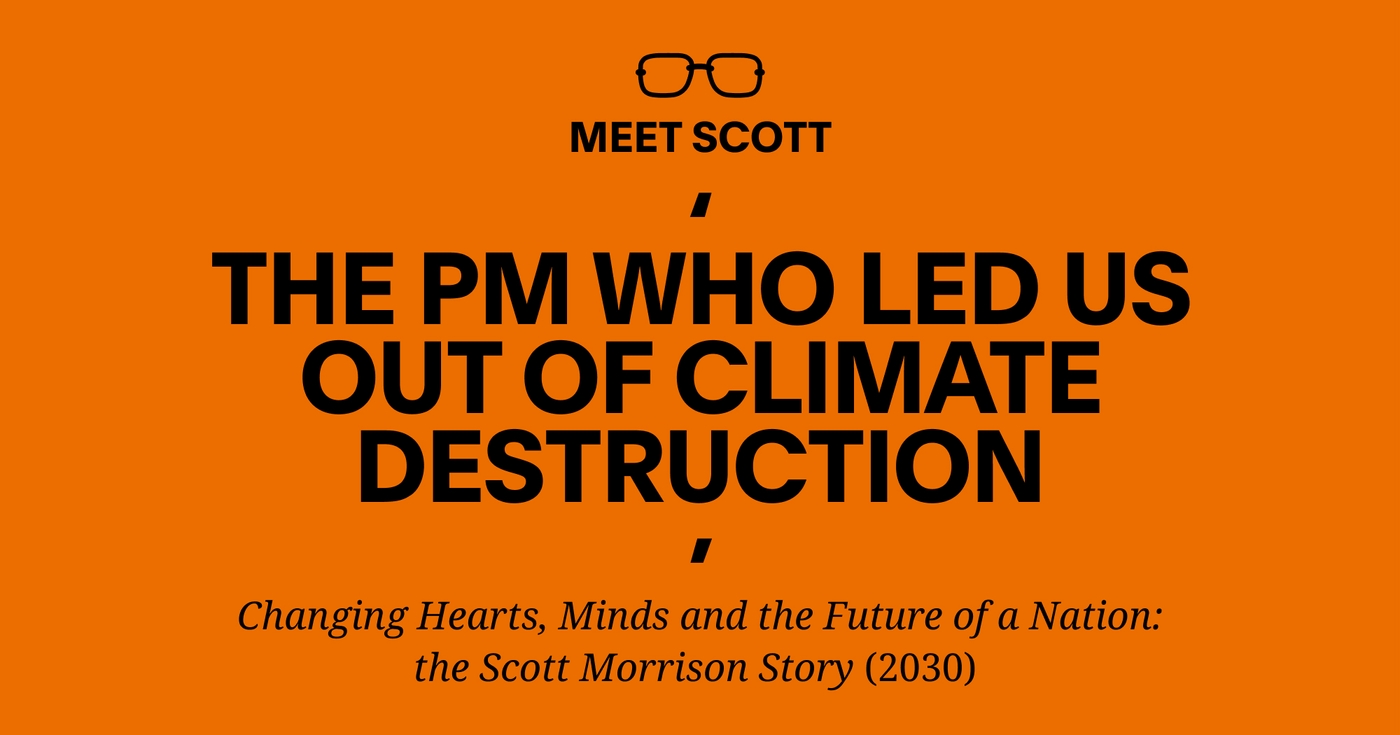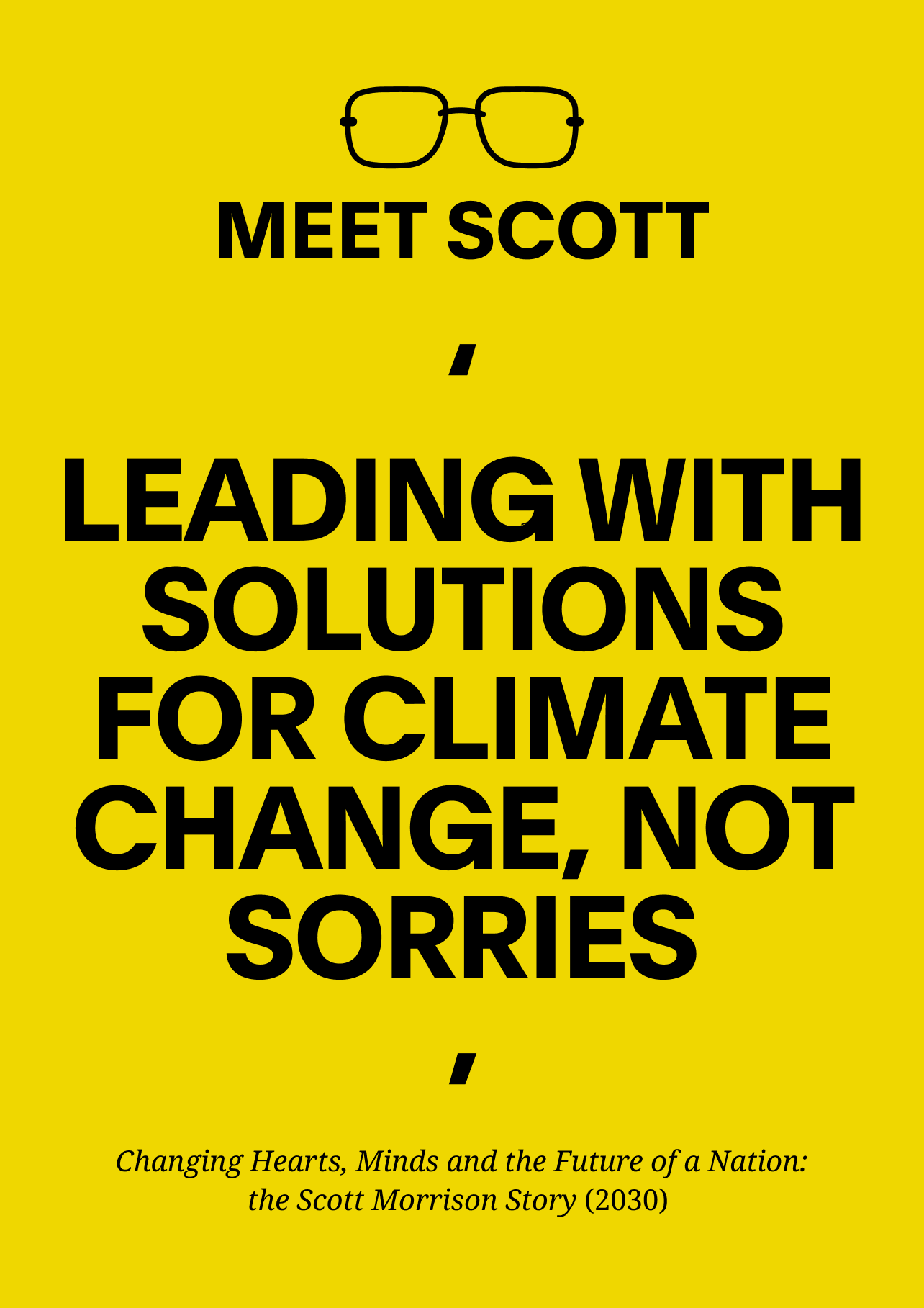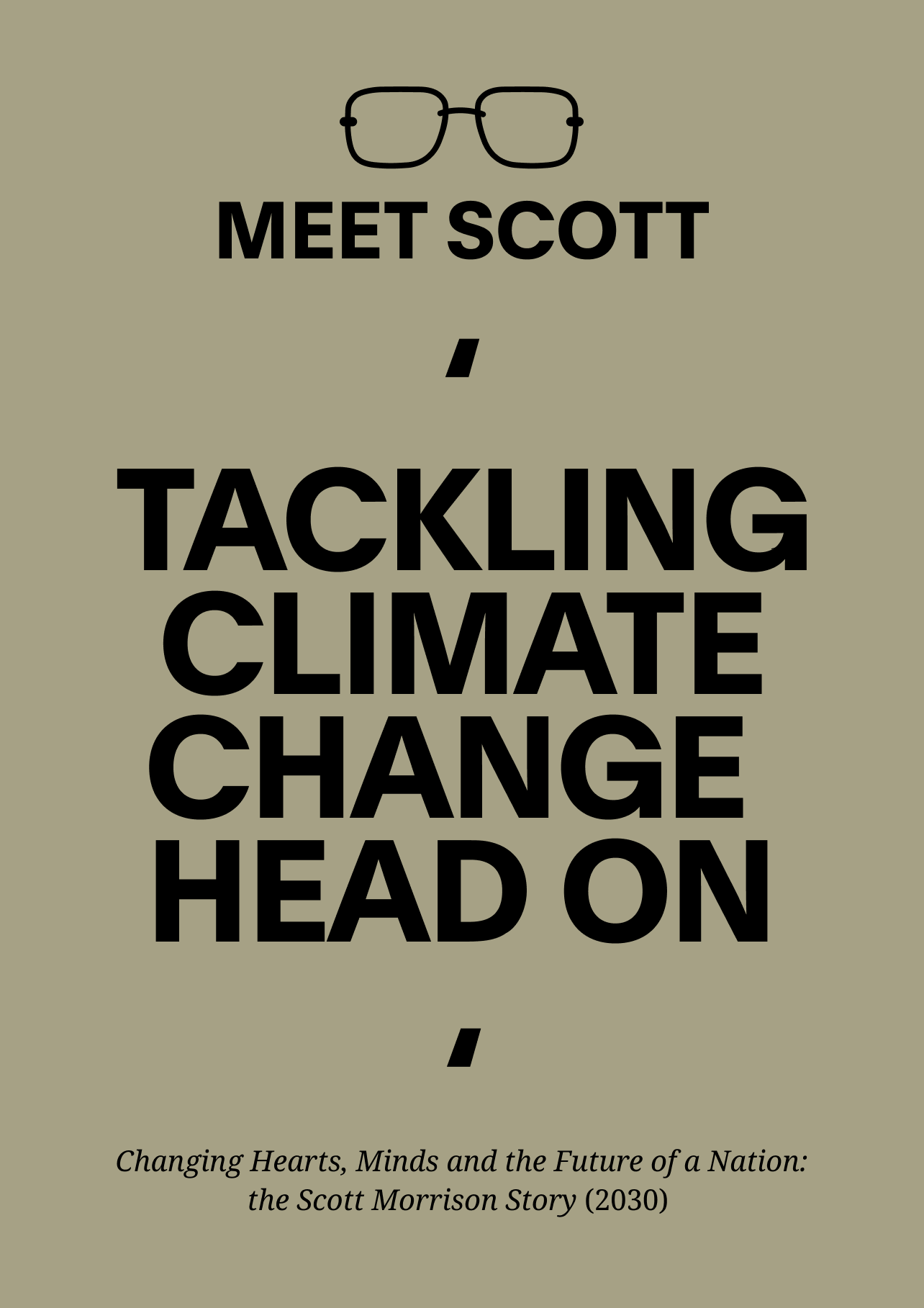
In January of 2020, the Design Business Council put forward a challenge for creatives to use their skills to raise public awareness about climate change through posters to be exhibited in Melbourne and Sydney. The twist? The audience for the design is none other than our friendly Prime Minister himself, Mr. Scott Morrison, or, as the DBC put it, “the most belligerent client ever.”
As is our approach to most of the problems we solve, we chose the path of empathy. Rather than blaming, shaming and attacking, we chose instead to understand and reason with Mr. Morrison on terms that communicate to his deepest needs and motivations.
Our final designs imagine a collection of 3 speculative future biography covers for Scott Morrison highlighting his hypothetical role in taking real action on climate change. As Prime Minister, we understand that Scott will be under the constant pressure of everyday politics, but we want to remind him that a Prime Ministership comes with the unique chance to leave a long-lasting, positive legacy. “Meet Scott” implied that there was a lack of leadership but potential for change and a new Scott Morrison that we haven’t yet met.
We reached our concept through a number of creative and empathy-building workshops we held at Portable. We looked at pictures of Scott as a young man, studied his story and current position, and earnestly empathised with his motivations and values in order to try and understand what kind of message would resonate with him.
The project put our powers of empathy to the test, but we drew upon some great principles from a previous Portable Talk on Empathy in Design that helped us through:
Empathy does not equal pity.
Just because we're trying to understand someone, it doesn't mean we need to feel sorry for them. It's possible to build a compassionate understanding of what led to a person's decisions and actions, whilst simultaneously holding them to account for those decisions and actions.
Empathy requires a non-moralistic mindset.
Our ability to use our imagination to put ourselves in another's experience will be blocked to the degree that we think that person is intrinsically "bad". "Othering" a person as less-than-human makes it impossible for us to understand their experience.
As addiction specialist Dr. Gabor Maté puts it: "No infant is born a bully, cruel or cold-hearted. Well-nurtured children mature naturally past infantile self-regard, develop impulse control and find empathy. They learn to feel and regulate their emotions. In the case of those who do not, there is pain they are unable or unwilling to confront. Their development was distorted. A political leader in denial of his trauma may be so little able to bear his core pain, fear and weakness that he will identify with the powerful, disdain and attack the vulnerable. Or, behind a false persona, she vows to support the downtrodden while kowtowing to the rich and dominant."
Empathy gives us the motivation we need to solve huge problems.
And we can’t think of a bigger problem for humanity than this. Yes, empathy for the millions of people impacted by climate change now and in the future will give us motivation, but experimenting to find out if empathy for those with the power and responsibility to make a positive change helps open up new avenues of possibility.

It turns out the judge of the challenge picked up on our intent to empathise and liked it. Our poster designs have been selected as first preference for being printed as a street poster, to be mass distributed around Melbourne.
Amber Bonney, the judge of the challenge Founder and Head of Strategy of Edison Agency, summed up our design rationale perfectly:
“The natural position for us is to point blame and be aggressive because we’re all so passionate about this issue, but the lack of judgment in Portable’s solution and empathy that they demonstrated would be less confrontational if it was going to ScoMo because it was an outcomes focussed message — it points out not only what isn’t he doing but what he can be doing and how could it benefit him.”
Congratulations to the team at Portable for their thoughtful and creative work on this challenge, and congratulations to the many other wonderful designers around the country who took part in this important experiment. Special thanks to Carol Mackay and Greg Branson of the Design Business Council for their courage and creativity in launching this project.
